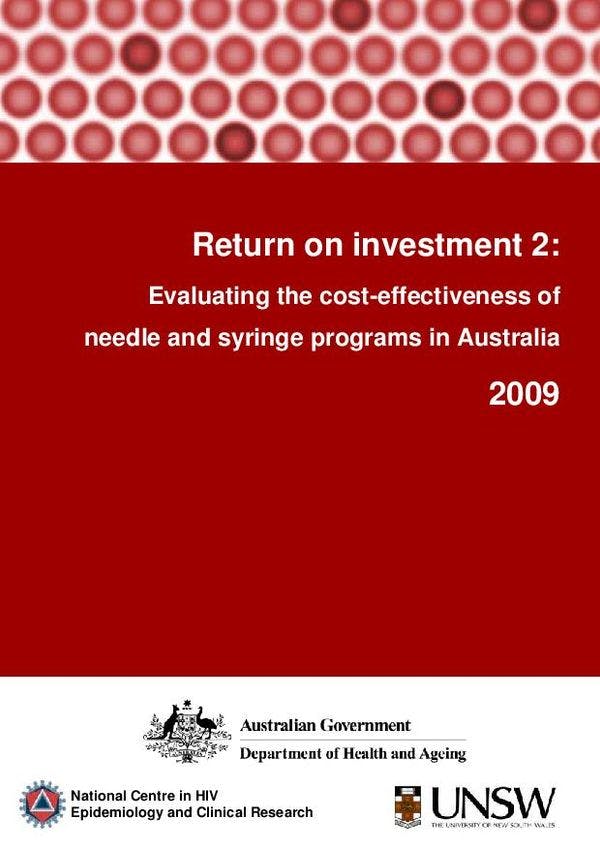2nd Australian Needle and Syringe Program Return on Investment Study
The Australian National Council on Drugs (ANCD) Asia Pacific Drug Issues Committee (APDIC) is pleased to announce the availability of translations of a new summary paper based on the influential 2nd Australian Needle and Syringe Program Return on Investment Study. The translations are being prepared in collaboration with the AusAID Offices in Hanoi and Bangkok through the Australian Government Aid Program funded initiative in the Greater Mekong Sub-region, the HIV/AIDS Asia Regional Program (HAARP).
Dr Peter Diamond, Regional Program Manager in AusAID, launched the Burmese and Vietnamese editions of the paper in Cambodia during a regional HAARP consultation and copies of the paper in Vietnamese were recently presented by A/Prof Robert Ali, APDIC Chair, to the Deputy Prime Minister of Vietnam on his recent visit to Australia.
The summary paper was prepared by APDIC in consultation with the authors of the major report from the Kirby Institute and is currently available in English, Burmese, Vietnamese and Khmer, with more languages to follow. These summaries can be found below along with the full report in English.
In announcing the availability of the papers, Dr Herron stated – “This is a very significant piece of collaborative work between AusAID and ANCD’s Asia-Pacific Committee. It provides countries in the region struggling to prevent HIV transmissions with very accessible information on the best frontline response we have – namely, needle and syringe programs. The Australian experience and expertise is highly sought after in the region and these papers demonstrate Australian co-operation and assistance with our neighbours in this vital public health arena.”
A/Prof Ali added – “The growing understanding of the link between development and drug use issues means that Australia’s experience is at the forefront in the regional response to address drug misuse and its associated harms. Being able to combine the knowledge of the Australian aid sector with the knowledge of the Australian drug and alcohol sector is a vital step in achieving similar results in countries implementing comparable but emerging programs in the region. Many people in the region are hopeful that this will lead to more effective implementation of needle and syringe programs in their countries while tapping into Australia’s recognised expertise and continuous health engagement in the region.”
The paper is expected to assist in the expansion and further development of needle and syringe programs in the region and potentially save thousands of lives by preventing the transmission of HIV and other blood borne viruses. The needle and syringe program in Australiashows all countries that access to sterile injecting equipment reduces the levels of HIV in the community. In Australia we are very fortunate to have one of the lowest rates in the world of HIV amongst injecting drug users. With the 2nd Australian Needle and Syringe Program Return on Investment Study showing that between 2000-2009 on needle and syringe programs we directly averted over 32,000 new HIV infections and almost 100,000 new HCV infections. The programs were also highly cost effective, providing savings of over $1 billion in healthcare costs and for every $1 invested $27 was returned in cost savings.
APDIC is also pleased to announce that consideration for replication of the 2nd Australian Needle and Syringe Program Return on Investment Study is now possible for countries in the region with Dr David Wilson from the Kirby Institute advising – “After conducting the Return on Investment Study of Needle-Syringe Programs in Australia and numerous countries in Eastern Europe, the University of New South Wales team, in conjunction with the World Bank, is selecting countries in Asia in which to replicate this study. If your organisation(s) are interested in working with UNSW to conduct an impact and economic evaluation of harm reduction programs in your country.”
For further information of having the study replicated in your country please contact David Wilson.
Keep up-to-date with drug policy developments by subscribing to the IDPC Monthly Alert.
